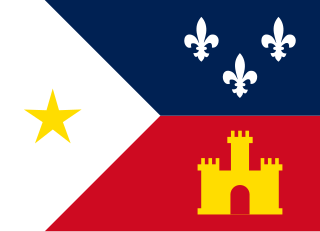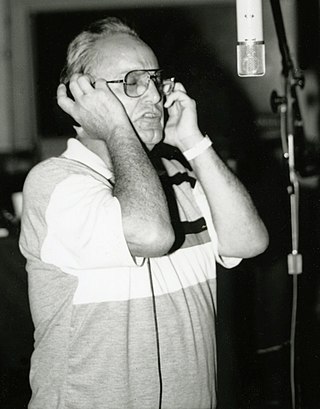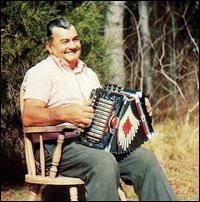Related Research Articles

The Cajuns, also known as Louisiana Acadians, are a Louisiana French ethnicity mainly found in the U.S. state of Louisiana.

Louisiana Story is a 1948 American black-and-white drama film directed by Robert J. Flaherty. Although it has historically been represented as a documentary film, the events and characters depicted are fictional and the film was commissioned by the Standard Oil Company to promote its drilling ventures in the Louisiana bayous. There is not enough factual or educational material in the film to even warrant classifying it as docufiction. Its script was written by Frances H. Flaherty and Robert J. Flaherty.

Keith Thibodeaux, also known as Richard Keith, is an American actor and musician, best known for playing Little Ricky on the television sitcoms I Love Lucy and The Lucy–Desi Comedy Hour. He was billed as Richard Keith because his Cajun French last name, "Thibodeaux", was considered too difficult to pronounce by producer Desi Arnaz. He is the last living regular appearing cast member from I Love Lucy.
Ole and Lena are central characters in jokes by Scandinavian Americans, particularly in the Upper Midwest region of the United States. These include the Upper Peninsula of Michigan, Minnesota, Wisconsin, Iowa, South Dakota and North Dakota, where Scandinavian immigrant traditions are common.

Holly Beach, also known as the "Cajun Riviera", is a coastal community in unincorporated community Cameron Parish, Louisiana, United States. Known for crabbing and a drive on the beach, this small Southwest Louisiana community mainly consisted of beach-front cabins called "camps" which, due to the threat of hurricanes, were "built-to-be-rebuilt" by its residents. It is part of the Lake Charles metropolitan area.

Justin Elmer Wilson was a Southern American chef and humorist known for his brand of Cajun-inspired cuisine, humor and storytelling.

Rod Bernard was an American singer who helped to pioneer the musical genre known as "swamp pop", which combined New Orleans-style rhythm and blues, country and western, and Cajun and black Creole music. He is generally considered one of the foremost musicians of this south Louisiana-east Texas idiom, along with such notables as Bobby Charles, Johnnie Allan, Tommy McLain, and Warren Storm.

‑eaux is the standard French language plural form of nouns ending in ‑eau, e.g. eau → eaux, château → châteaux, gâteau → gâteaux.

Cajun English, or Cajun Vernacular English, is a dialect of American English spoken by Cajuns living in Southern Louisiana. Cajun English is significantly influenced by Louisiana French, the historical language of the Cajun people, a subset of Louisiana Creoles — although many today prefer not to identify as such — who descend largely from the Acadian people expelled from the Maritime provinces during Le Grand Dérangement.

Nathan Abshire was an American Cajun accordion player. His time in the U.S. Army inspired Abshire to write the crooner song "Service Blues", which the newspaper Daily World reported as "one of his most memorable tearjerkers". After the war, he settled in Basile, Louisiana, where he played regularly at the Avalon Club. He released his best-known record, "Pine Grove Blues", in 1949. Abshire's music became more well known outside of Louisiana at the 1964 Newport Folk Festival. Abshire was never able to write so he was unable to sign autographs, resulting in him having to politely decline the requests. Despite thoughts of Abshire being "arrogant or stuck-up" for not signing autographs, he was unable to read and write. However, Abshire was taught how to write his own signature by Barry Jean Ancelet. Despite receiving more income from music than the majority of Cajun musicians, Abshire was not able to entirely depend on that income to live on. Abshire had multiple jobs during his life and his final job was working as the custodian of the town's dump. Abshire's legacy continued after his death in the form of a museum, a book, and a magazine special issue.

Milton is an unincorporated community and census-designated place in Lafayette Parish, Louisiana, United States. At the 2010 U.S. census it had a population of 3,030; at the 2019 American Community Survey, it had an estimated population of 2,299. Milton is part of the Lafayette metropolitan statistical area.
Joseph Falcón was an accordion player from southwest Louisiana, best known for producing the first recording of a Cajun song, "Allons à Lafayette," in 1928. He and his wife Cléoma Breaux left for New Orleans to record the first Cajun record and went on to perform across southern Louisiana and Texas.
The Cajun French Music Association is an association dedicated to the promotion and preservation of Cajun music and culture.

Canray Fontenot was an American Creole fiddle player, who has been described as "the greatest Creole Louisiana French fiddler of our time."
Thibodeaux is a Cajun (French) surname. Notable people with the surname include:
Boudreaux is a surname of French origin and is a common name among Cajuns. The name refers to:
Gus Weill, Sr., was an American author, public relations specialist, and political consultant originally from Lafayette, Louisiana.

Acadia: A New Orleans Bistro, or simply Acadia, was a Cajun-, Louisiana Creole-, and Southern-style restaurant in northeast Portland, Oregon, in the United States.

"These Heaux" is the debut solo single recorded by American rapper Bhad Bhabie. It was released on August 24, 2017, as the rapper's debut single and she subsequently became the youngest female rapper to have a single debut on the Billboard Hot 100, after the song peaked at number 77.
Abish Mathew is an Indian stand-up comedian and YouTuber. He is known for his work with All India Bakchod, as the creator and host of a late night show Son of Abish and Journey Of A Joke, Comedians on Board and as the host of Comicstaan.
References
- 1 2 "The Kings of Comedy: The Marx Brothers". FlickSided. 18 June 2014. Retrieved 2016-04-14.
- ↑ "Boudreaux & Thibodeaux Cajun Humor/New Jokes Page". cajunguy20.tripod.com. Retrieved 24 May 2018.
- ↑ "They're not deaus guys: Exploring 'Boudreau and Thibodeau's Cajun Cookin' '". Star Tribune. May 16, 2016. Retrieved 2019-05-21.
- ↑ Carmichael, Katie (2013-11-01). "The Performance of Cajun English in Boudreaux and Thibodeaux Jokes". American Speech. 88 (4): 377–412. doi: 10.1215/00031283-2691415 . ISSN 0003-1283.
- ↑ Maloney, Ann (October 16, 2018). "Chef Isaac Toups' exuberant, new cookbook puts you in a Cajun kitchen". NOLA.com. Retrieved 2019-05-21.
- ↑ Boudreaux, Larry (1999). Dat Boudreaux Ain't Me, It's Ma Cousin. Boudreaux Cajun General Store. ISBN 0967600200.
- ↑ Eccher, Marino (2016-05-18). "Boudreau and Thibodeau are the stars of their own Cajun jokes". Twin Cities Pioneer Press. Retrieved 2019-05-21.
- ↑ "Da Joke of Da Day". Boudreaux and Thibodeaux Jokes. Retrieved 2016-04-14.